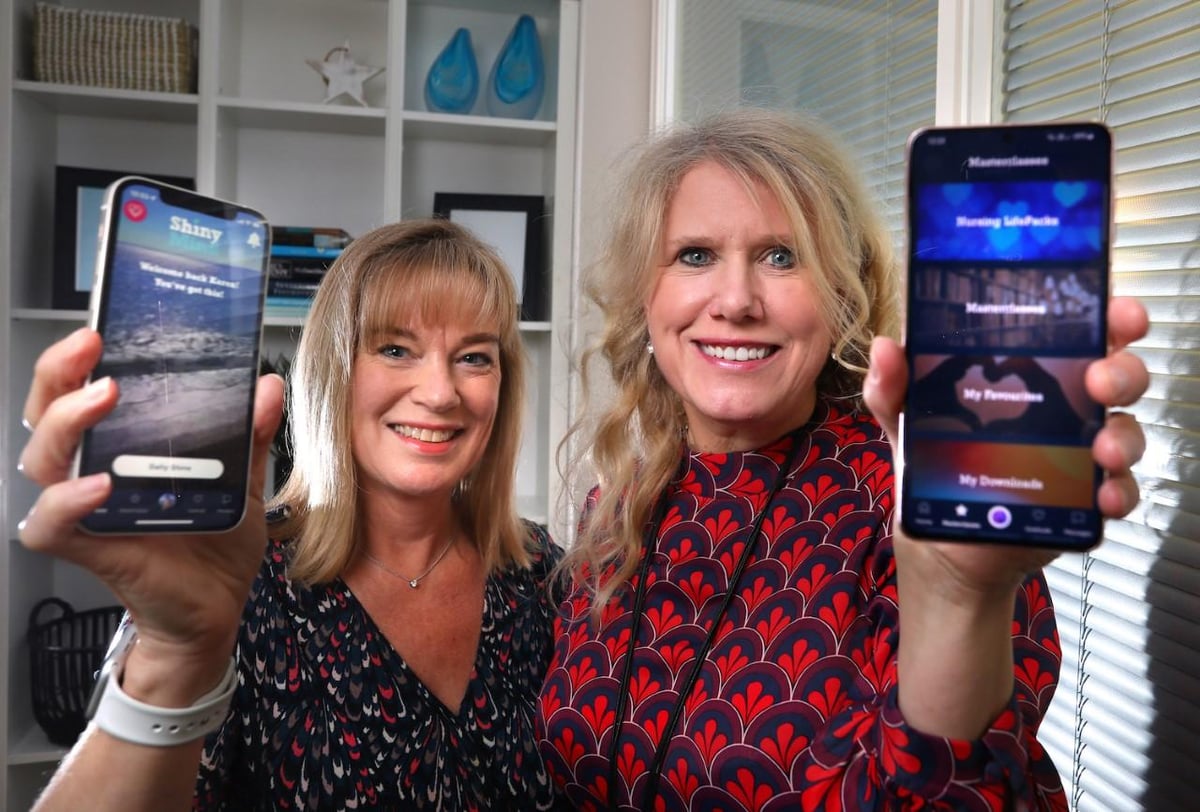The same pandemic-driven boom in mental health and wellness apps that helped quell two years of COVID-related discontent is now raising alarms about privacy, effectiveness and a blurring of the line between medical treatment. formal and general personal care.
Why is this important: Online mental health services have given more people easy access to help than ever before, and the sector is booming with investment.
Yes, but: Not all mental health issues can be addressed with an app, and consumers are baffled by the range of options available – in the face of app advertising that can sometimes confuse serious mental health issues with well-being concerns. -be more vague.
- “We need to get more sophisticated and differentiate apps from what they’re trying to do,” René Quashie, vice president of policy and regulatory affairs for digital health at the Consumer Technology Association, told Axios.
- “There’s a difference between someone with severe depressive symptoms and someone going through a stressful time in their life,” and apps should be clear about their goals and abilities, Quashie said.
What they say : Experts who spoke to Axios said mental health apps fall into two camps: those that connect patients with clinicians and those that don’t, instead offering chatbots, mood trackers and guided breathing exercises.
- “I think we all want there to be great ways to see our doctors remotely…but when you go online, you have to think about the treatment modality and how effective it is,” Christina Farr, an investor in health technology at Omers Ventures, Axios told Axios.
- For example, Farr said, cognitive behavioral therapy is particularly popular for eHealth services, but it won’t work for all patients.
Confidentiality and efficiency issues: Privacy policies for mental health apps are everywhere.
- Problems are more common with apps that don’t include clinical intervention and are therefore not subject to health privacy rules, and the lack of a comprehensive federal privacy law makes matters worse, a said Quashie.
- A 2018 study published in the journal Internet Interventions found that less than half of the 116 depression apps surveyed had a privacy policy. In 2021, Consumer Reports found that some popular mental health apps shared data with Meta and other companies, and tracked targeted advertising.
- January’s research on mobile apps for mental health found no “compelling evidence” that any app intervention significantly helped anxiety, depression, smoking or alcohol use, suicidal thoughts or feelings of well-being.
There is also controversy around applications that diagnose and prescribe stimulants to treat attention deficit disorders. These apps have gained popularity thanks to a pandemic-era waiver that allows companies to prescribe controlled substances online, but now some are being accused of being “Adderall factories”.
The other side: Connecting to a therapist through an app can be a lifesaver for people, especially during COVID-19 lockdowns.
- Studies suggest that in some cases online therapy with an approved provider can work just as well as in person. “We can actually say, whether you do it on Zoom or in real life, these results are quite similar,” Harvard Medical School psychiatry professor Stephanie Collier told Axios.
- Tiffanie Mouzun, a 41-year-old woman from Orange County, California, told Axios she started using TalkSpace to text a therapist while recovering from an injury and couldn’t go nowhere in person.
- She said using the app removed the stigma of seeking mental health help. “I got on really well with my therapist,” she said. “He was really there for me for a lot of my recovery. When you go to therapy, everyone is watching the clock…Throughout the day, if I needed to talk to him, I could just text him.”
By the numbers: $4.4 billion was paid into mental health apps globally in 2021. $1.4 has been paid into the industry so far in 2022, according to data provided to Axios by Pitchbook. 406 Mental Health Startup Deals were completed in 2021, with 126 so far in 2022.
- The main companies are Cerebral, Lyra, Spring Health, Calm and Sondermind. Each of these services, with the exception of the Calm meditation app, connects users with clinicians.
The bottom line: In an ideal world where everyone has the resources and time for traditional therapy, mental health apps can best be seen as a supplement, not a panacea. Harvard’s Collier said apps without human intervention are best used as a “complementary way to build skills.”
- “Probably nothing beats that one-on-one connection,” said Mouzoon, who used TalkSpace. “In addition to my therapy, I would have the app – that’s how I would design my life if I could.”
 AD Roberts
AD Roberts


